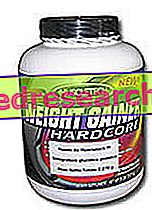
What is Nexavar?
Nexavar is a medicine that contains the active substance sorafenib. It is available as red round tablets (200 mg).
What is Nexavar used for?
Nexavar is used to treat patients with the following diseases:
- hepatocellular carcinoma (a type of liver tumor);
- advanced renal cell carcinoma (a type of renal tumor) after failure of an interferon alfa or interleukin-2 therapy or when these therapies cannot be used.
Because the number of patients with hepatocellular carcinoma and renal cell carcinoma is small, these diseases are considered "rare" and Nexavar was designated an "orphan medicine" (a medicine used in rare diseases) on 11 April 2006 and 29 July. 2004.
The medicine can only be obtained with a prescription .
How is Nexavar used?
Treatment with Nexavar should be under the supervision of a physician experienced in the use of anticancer therapies.
Nexavar should be given twice a day as two tablets between meals or with a low-fat meal. Treatment should continue until the patient reports benefits without too many side effects.
How does Nexavar work?
The active substance in Nexavar, sorafenib, is a protein kinase inhibitor. That is, it blocks some specific enzymes known as protein kinases. These enzymes can be found in some receptors on the surface of tumor cells, where they are involved in the growth and spread of cancer cells, and in the blood vessels that supply the tumor mass, where they are involved in the formation of new blood vessels. Nexavar works by slowing down the growth rate of cancer cells and blocking the blood supply that allows cancer cells to develop.
How has Nexavar been studied?
Nexavar has been compared with placebo (a dummy treatment) in two main studies. The first study involved 602 patients with hepatocellular carcinoma and the second study was performed on 903 patients with advanced renal cell carcinoma in which the effect of a previous anticancer treatment had ceased. The main measure of effectiveness in the hepatocellular carcinoma study was the duration of patient survival. The main measures of efficacy in the advanced renal cell carcinoma study were the duration of patient survival and the period of survival of patients without worsening the disease.
What benefit has Nexavar shown during the studies?
Nexavar was more effective than placebo in lengthening patient survival.
In the hepatocellular carcinoma study, patients taking Nexavar survived on average 10.7 months, compared with 7.9 months of those taking placebo.
In the renal cell carcinoma study, patients taking Nexavar survived on average 19.3 months, compared with 15.9 months of those taking placebo. This conclusion was based on the results of 903 patients, including about 200 who had switched from placebo to Nexavar before the end of the study. Patients treated with Nexavar survived longer without their disease getting worse (167 days, about five and a half months) than those taking placebo (84 days, about three months). This conclusion was based on the results of 769 patients.
What is the risk associated with Nexavar?
In studies the most common side effects with Nexavar (seen in more than 1 patient in 10) were lymphopenia (low levels of lymphocytes, a type of white blood cell), hypophosphataemia (low levels of phosphate in the blood), haemorrhage, hypertension (high blood pressure), diarrhea, nausea, vomiting, rash, alopecia (hair loss), "hand-foot syndrome" (redness and pain in the palms and soles of the feet); erythema (redness), itching, fatigue (tiredness), pain and increased levels of amylase and lipase (enzymes produced by the pancreas). For the full list of all side effects reported with Nexavar, see the Package Leaflet.
Nexavar should not be used in people who may be hypersensitive (allergic) to sorafenib or any of the other ingredients.
Why was Nexavar approved?
The Committee for Medicinal Products for Human Use (CHMP) decided that Nexavar's benefits are greater than its risks for the treatment of hepatocellular carcinoma and advanced renal cell carcinoma in patients who have not responded to a previous interferon alfa therapy or interleukin-2 or in patients considered unfit to receive such therapy. The committee recommended the granting of a marketing authorization for Nexavar.
More information on Nexavar:
On 19 July 2006, the European Commission issued a marketing authorization for Nexavar, valid throughout the European Union. The marketing authorization holder is Bayer Schering Pharma AG.
The summaries of the opinion of the Committee for Orphan Medicinal Products on Nexavar are found here (hepatocellular carcinoma) and here (renal cell carcinoma).
For the full EPAR for Nexavar, click here.
Last update of this summary: 4-2009



